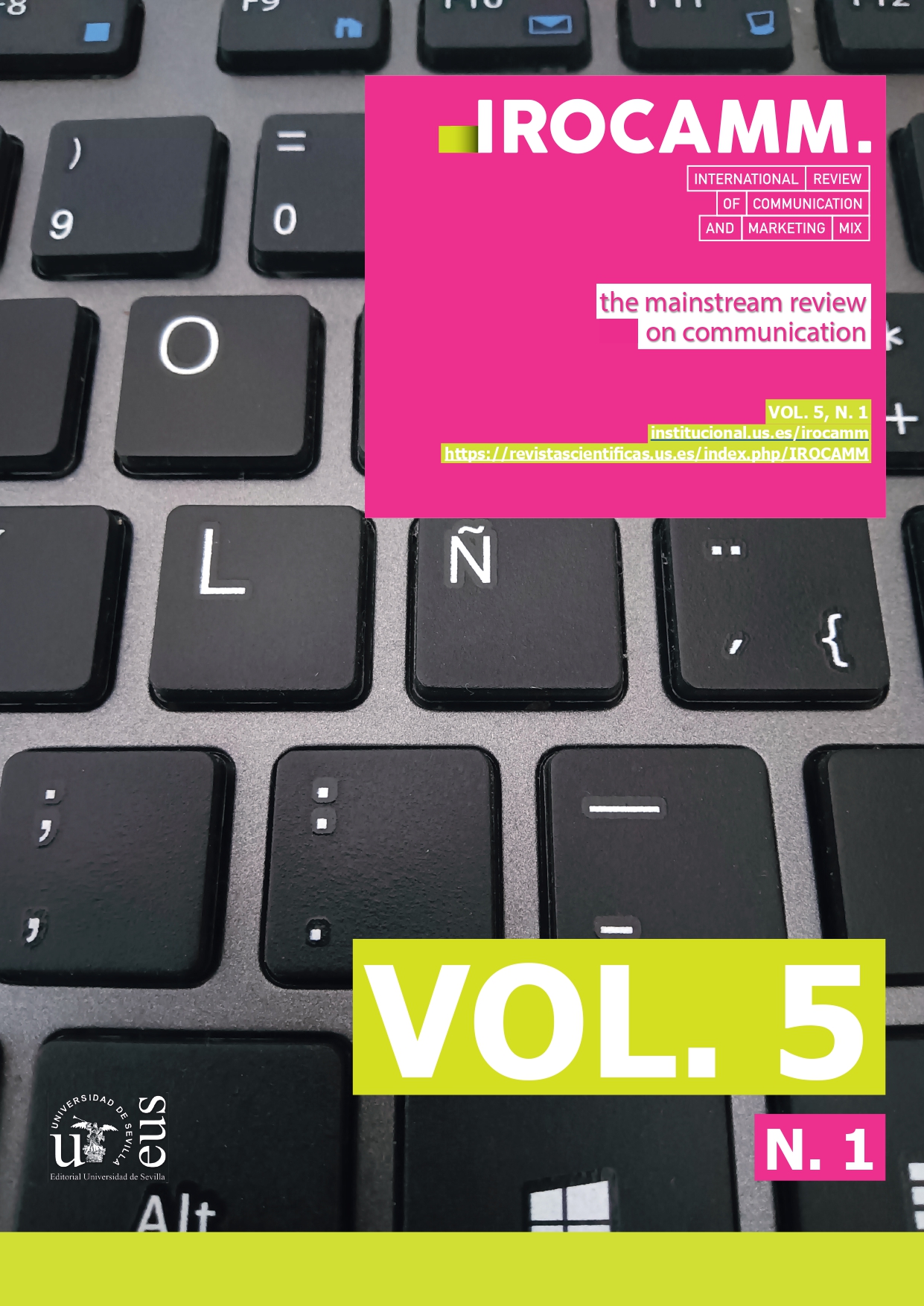Abstract
The present study concerns the position of marketing and its digital transformation as an administrative function in public higher education organizations in Greece. The study started from the need to understand the attitudes of Greek public university managers towards the need to adopt new practices such as marketing and its digital transformation, through discourse, perceptions and explicit or implicit views, as well as the factors that shape them. Therefore, the aim of the research was based on the comparison of attitudes with the digital activities of public schools versus private companies employing marketing tactics with a strategic and tactical development of the 4 ps of the marketing mix. The methodology was qualitative in nature, employing the strategy of 'Criterion sampling'.
The results point to the fact that the duration of a university is directly related to the formation of perceptions about marketing and how to act in the context of digital Darwinism, so it can be anticipated, as a conclusion, to the need to equate public administration of higher education (university) with the tactical and functional approach of private companies.
References
Burns, J., (1989). EDITOR'S NOTE, Journal of Marketing for Higher Education, 1 (2).
Carnegiedartlet (2020). SEARCH ENGINE OPTIMIZATION FOR HIGHER EDUCATION. https://www.carnegiedartlet.com/services/digital-marketing/search-engine-optimization/
Cetin, R. (2003). "Planning and Implementing Institutional Image and Promoting Academic Programs in Higher Education," Journal of Marketing for Higher Education, 13 (1/2), pp. 57-75.
Chaffey, D., (2018). What is Digital Marketing? A visual summary. Smart Insights. https://www.smartinsights.com/digital-marketing-strategy/what-is-digital-marketing/
Creswell, JW (2007). Qualitative inquiry and research design: choosing among five approaches. Thousand Oaks, London: Sage.
Fanjul-Peyró, C.; González-Oñate, C.; Cabezuelo-Lorenzo, F. (2015). Key-Elements for Characters Realism in TV Series. A case-study focused on 'Glee'. Girls & University. Doxa Comunicación, 20, p. 185-202.
Featherstone, K. (2015). External conditionality and the debt crisis: The 'Troika' and public administration reform in Greece. Journal of European Public Policy, 22 (3), pp. 295-314.
Flick, U. (2009). An introduction to qualitative research, Fourth edition, Sage, London.
Gobble, MM (2018). Digital strategy and digital transformation. Res. Manag. 2018, 61, p. 66–71, doi: 10.1080 / 08956308.2018.1495969.
Hampton, G., Lambert, D. (1994). “Ethnic Perceptions of College Student Satisfaction;”. In Proceedings of Southern Marketing Association.
Hayes, TJ, Ruschman, D., & Walker, MM (2009). Social Networking as an Admission Tool: A Case Study in Success. Journal of Marketing for Higher Education, 19 (2), 109-124.
Helgesen, O. (2008). Marketing for higher education, a relationship marketing approach. Journal of Marketing for higher education, 18 (1), pp. 50-78.
Jiménez-Marín, G.; Elías Zambrano, R.; Silva Robles, C. (2014). Teaching innovation and its application to the EEES: Entrepreneurship, ICT, and University. Historia y Comunicacion Social, 19, 187-196.
Kotler, P. & Fox, KFA (2002). Strategic Marketing for Educational Institutions, Upper Saddle River, New Jersey, Prentice Hall.
Kotler, P., & Lee, N. (2006). Marketing in the Public Sector. Upper Saddle River: Pearson Education (US).
Kreutzer, P., Land, K.-H., (2013). Digital Darwinism: Branding and Business Models in Jeopardy, Springer, Fachmedien Wiesbaden.
Lawton, L., (2015). The Leader's role in managing change: Five cases of technologyenabled business transformation. Global Business and Organizational Excellence, pp.28–42.
Maringe, F., (2006). University Marketing: Perceptions, Practices and Prospects in the Less Developed World, Journal of Marketing for Higher Education, 15 (2), pp.129-153.
McAlexander, J., Koenig, H., Schouten, J., (2005). Building a University Brand Community: The Long-Term Impact of Shared Experiences, Journal of Marketing for Higher Education, 14 (2), pp. 61-79.
Michaluk, G. 2008. The Marketing Director's Role in Business Planning and Corporate Governance. Hoboken, NJ: John Wiley and Sons.
Molesworth, M, Nixon, E and Scullion, R (2009) 'Having, being and higher education: the marketing of the university and the transformation of the student into consumer', Teaching in Higher Education, 14 (3), 277-287
Pelletier, S. G, (1985). To Market to Market, Educational Horizons, 63 (2), pp.54, 56-60.
Peruta, A., Shields, A., (2018) Marketing your university on social media: a content analysis of Facebook post types and formats, Journal of Marketing for Higher Education, 28 (2), pp. 175-191.
Petkovics, P. Tumbas, P. Matkovic, Z. Baracskai, (2014). "Cloud Computing Support to University Business Processes in External Collaboration". Acta Polytechnica Hungarica, 11 (3), pp.181-200.
Prahalad, CK & Oosterveld, JP, 1999. Transforming Internal Governance: The Challenge for Multinationals. Sloan Management Review, 42 (2), pp.31–39.
Pricewaterhouse Coopers (2018). The 2018 digital university. In staying relevant in the digital age. https://www.pwc.co.uk/assets/pdf/the-2018-digital-university-staying-relevant-in-the-digital-age.pdf (retrieved 12/8/2020).
Silverman, D. (2001). Interpreting Qualitative Data: Methods for Analyzing Talk, Text and Interaction, A Guide to the Principles of Qualitative Research, 5th edition SAGE London
Smith, LR, Cavusgil, B. (1984). Marketing Planning for Colleges and Universities, Long Range Planning, 17 (6), pp. 104‐117.
The World University Ranking (2020). Digital student recruitment in the time of coronavirus. Retrieved from https://www.timeshighereducation.com/hub/keystone-academic-solutions/p/digital-student-recruitment-time-coronavirus (retrieved 1/7/2020).
Whitehead, F. (2012). Student Recruitment Strategy: Four Universities, Five Key Questions. The Guardian, [online] (Last updated 11.29 GMT on 13th Nov 2012), http://www.guardian.co.uk/higher-education-network/blog/2012/nov/13/student-recruitment-strategy-international -universities> (Retrieved 8/3/2017).
Zhao, M .; Liao, H.-T .; Sun, S.-P. (2020). An Education literature review on digitization, digitalization, datafication, and digital transformation. In Proceedings of the 6th International Conference on Humanities and Social Science Research (ICHSSR 2020), Hangzhou, China, pp.10–12 April 2020.
Th. Iosisfidis & M. Spyridakis (Eds.), Qualitative Social Research: Methodological Approaches and Data Analysis (pp. 231-257). Athens: Review.

This work is licensed under a Creative Commons Attribution-NonCommercial-ShareAlike 4.0 International License.
Copyright (c) 2022 IROCAMM - International Review Of Communication And Marketing Mix

